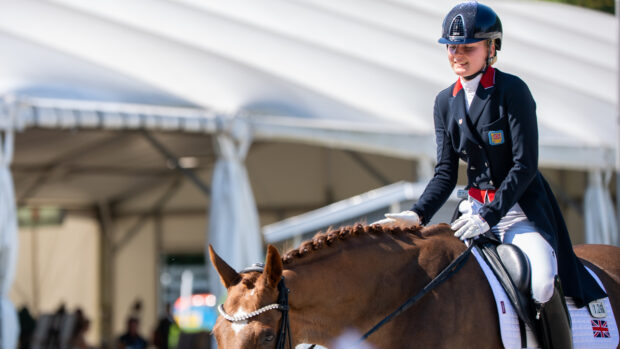The owner of a successful international dressage horse, who had to be put down after developing laminitis following steroid treatment by a French vet, won £350,000 compensation for her loss at London’s High Court yesterday.
Jane McGarel-Groves had owned the former French national champion dressage horse, Annastasia (Anna), who was ridden by Michel Assouline, for 10 years when she developed the crippling condition in July 2001.
The 14-year-old mare’s death was triggered by her injection with corticosteroids by French vet, Erik Grandiere, in an attempt to improve the horse’s competition performance, Mr Justice Forbes was told. The judge subsequently ruled the French vet 85% responsible for what happened.
Fixing Anna’s worth when she died, and therefore McGarel-Grove’s payout, at £350,000, the judge said the remaining 15% of responsibility lay with British vet, Philip John Glyn, of Priors Farm Equine Veterinary Surgery, in East Sussex, who had overseen Anna’s treatment.
Mr Justice Forbes said he had reached “the firm conclusion” that Mr Glyn had breached the duty he owed Mrs McGarel-Groves by failing to inquire as to the identity of the steroids and the dose the French vet gave the mare.
Although the lion’s share of blame lay with the French vet, the judge said: “Mr Glyn was in breach of his admitted duties to observe the treatment and intervene if necessary.”
Patrick Lawrence QC, for Mrs McGarel-Groves, earlier argued it was “elementary good practice” that she should have been warned of the risk that the steroid treatment might cause laminitis, and the vets’ failure to do so was “indefensible”.
Mrs McGarel-Groves was aware of the proposed treatment, but Mr Lawrence said she had “no idea” that the injection might trigger laminitis as a side-effect. “She did not know of any risk attached to the proposed course of action”, he added.
Eleven days after the injections to Anna’s back and hocks were given, she started to show the first signs of laminitis, and despite treatment, had to be destroyed on 29 July 2001 “because there was no possibility of saving her”, the QC told the court.
The judge’s ruling means M. Grandiere’s employers — Clinique Veterinaire Equine de Chantilly — will have to pay 85% of the £350,000, with interest. Mr Glyn, or his professional insurers, must pay the remaining 15% and both defendants also face heavy legal costs bills.




